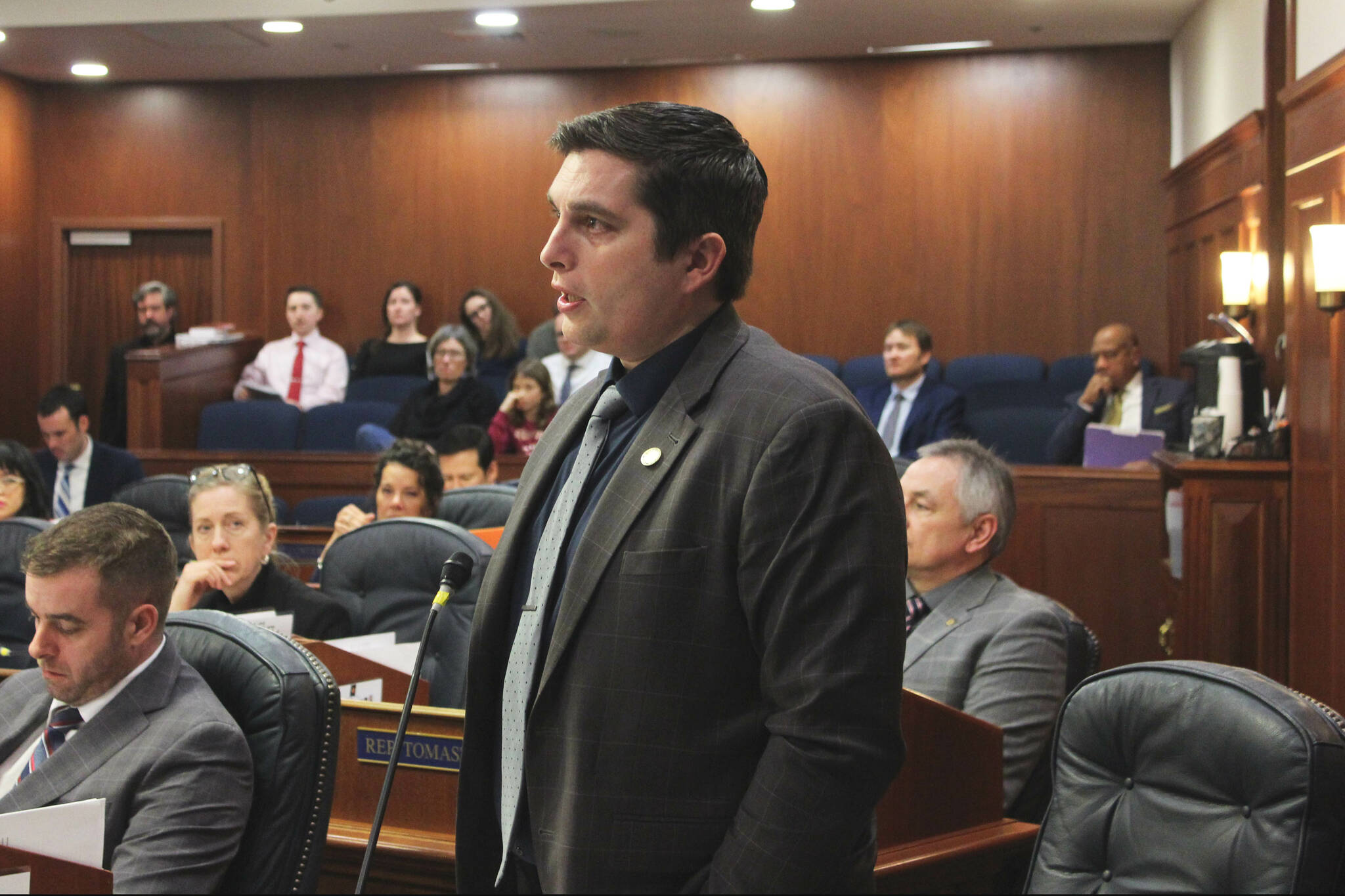JUNEAU — Alaska’s graduating high school seniors could receive more state scholarship money and would be told more often about the opportunity to apply under a bill passed in the House that makes significant changes to the Alaska Performance Scholarship.
That money is awarded to high-performing high school graduates to help pay for postsecondary education at participating institutions in Alaska. Award amounts range from $2,378 to $4,755 per year depending on a student’s grade point average, standardized test scores and high school class schedule.
The money is paid out from the Alaska Higher Education Investment Fund — established in state statute for the purpose of paying student grants and scholarships — and is awarded each year for up to four years. Students eligible for the largest scholarship award, for example, could receive up to $19,020 to put toward their education.
The number of students using the program, though, has steadily declined since it was established in 2011. Only 17% of students in 2023 were eligible for the program — the lowest rate since its inception. Of those eligible for the scholarship, only one in three use the program, on average.
In the Kenai Peninsula Borough School District, about 14.8% of high school graduates were eligible for an Alaska Performance Scholarship in 2023. The percentage of KPBSD students eligible jumped in 2020 and 2021, when the state waived standardized test scores as a requirement for the scholarship.
The bill passed in the House on Feb. 26 seeks to reverse those trends by increasing the scholarship award amounts, bolstering the way students are notified about the scholarship and its requirements and adding vocational education to the types of classes considered for eligibility, among other things.
For the lowest scholarship level, the award amount would increase from $2,378 per year to $3,500 per year. For the middle level, annual awards would increase from $3,566 to $5,250. For the highest scholarship level, the amount would increase from $4,755 to $7,000 per year.
The bill also allows students to increase their award amount if their grade point average in college increases and eliminates from the program’s eligibility requirements that students submit standardized test scores, such as from the SAT or ACT.
The state estimates it will pay out $2.3 million more in scholarship awards for the upcoming fiscal year if the bill is passed, in anticipation of an increase in the number of newly eligible students who apply for the program.
Rep. Justin Ruffridge, a Soldotna Republican, co-chairs the House Education Committee and presented the bill for House consideration last Monday. The legislation, he said, is intended to increase the number of students who take advantage of the scholarship program and stay in Alaska.
“The Alaska Performance Scholarship has been in Alaska since 2011 and unfortunately has seen a precipitous decline in its usage in the last few years,” he said. “One of the good things about the Alaska Performance Scholarship is that it does keep students in Alaska and especially students that choose to use the program.”
The bill was received warmly by lawmakers prior to receiving a rare 39-0 vote.
Rep. Andi Story, D-Juneau, praised the inclusion of career and technical education language in the bill and said the scholarship is a necessary incentive for Alaska to be competitive for high performing students.
“We’re really modernizing the Alaska Performance Scholarship right now for today,” she said. “We are in competition — our best and brightest students who take these four years of rigorous curriculum (are) getting offers from other states to come and go to their colleges.”
After the Feb. 26 vote, Ruffridge said the legislation is an example of how things “should be done,” in Juneau, as evidenced by the 39-0 vote in support.
“When you do the work, which is build consensus, find the pieces that are important to each person, be willing to go back to the drawing board on different avenues that you might have missed, you really can craft, I think, good legislation,” he said.
The House bill has a companion in the Senate — sponsored by Sen. Forrest Dunbar, D-Anchorage — that has already been considered by and voted out of the Senate Education and Finance committees. That bodes well for the bill’s future in that chamber. If the Senate concurs with the version passed in the House, it will go to Gov. Mike Dunleavy for consideration.
Reach reporter Ashlyn O’Hara at ashlyn.ohara@peninsulaclarion.com.
This reporting from the State Capitol was made possible by the Alaska Center for Excellence in Journalism’s Legislative Reporter Exchange. Alaska news outlets, please contact Erin Thompson at editor@peninsulaclarion.com to republish this story.


